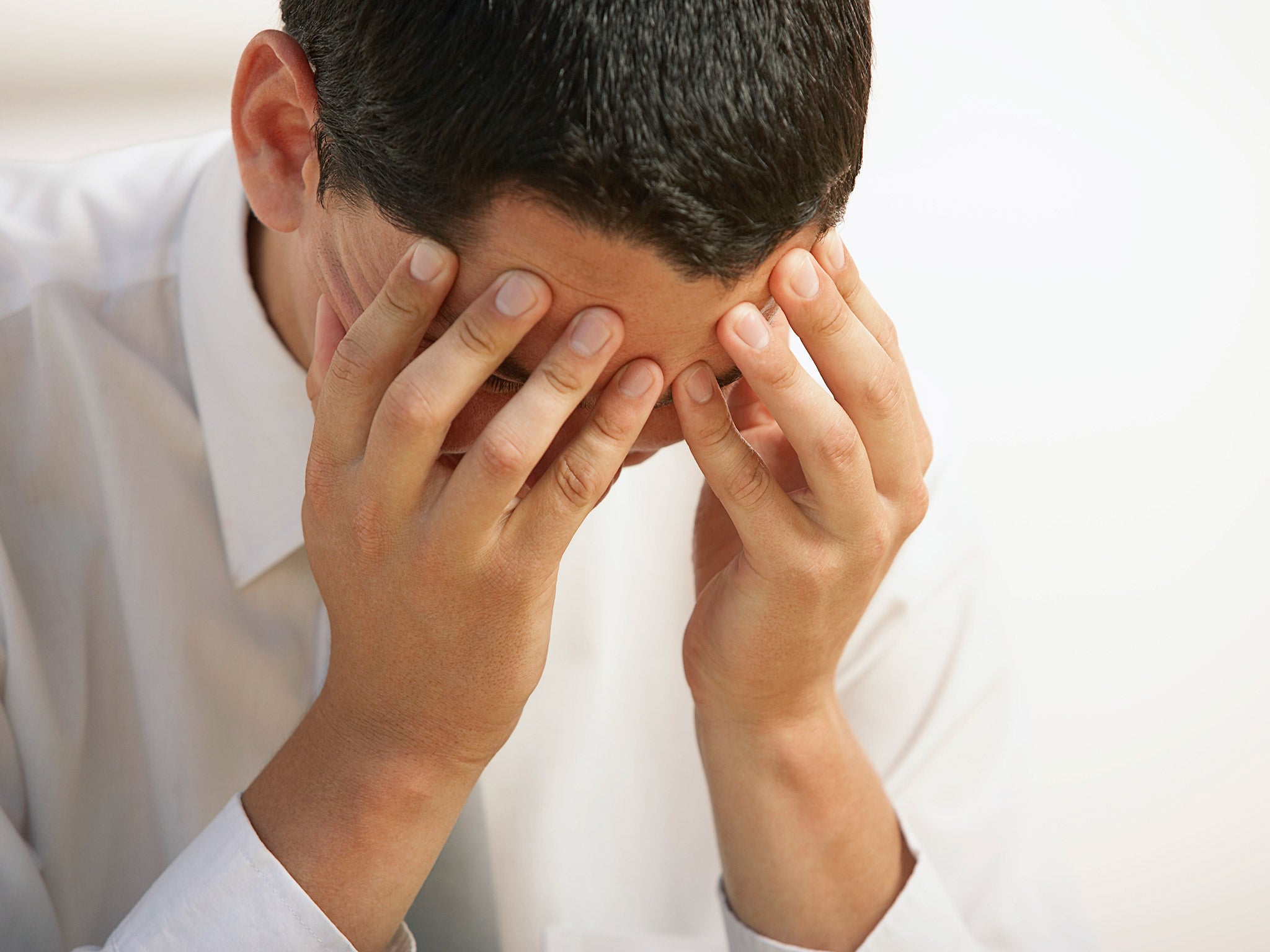The Independent's journalism is supported by our readers. When you purchase through links on our site, we may earn commission.
8 ways to cope with anxiety
One fifth of people with anxiety issues have no coping strategy - so here are some tips

Anxiety is one of the most prevalent mental health disorders in the UK, with one in five people reporting that they feel anxious all the time, or a lot of the time.
A YouGov study conducted in 2014 revealed that one fifth of people who experience anxiety have no coping mechanism, while the most popular ways to cope include speaking to a friend, exercise and taking a walk.
But what other ways are there to cope with anxiety?
AsapTHOUGHT is a Youtube channel that combines science with every day issues. The Canadian youtubers mash up science with everyday life and created a video featuring the 8 ways to cope with anxiety.
Don’t google symptoms
When you’re in the midst of a panic attack it’s easy to feel like your symptoms are a signal for something bigger. Often panic attacks come with physical symptoms such as chest pains or nausea. While it’s tempting to search online to see what’s going on, don’t.
HALT – are you Hungry, Angry, Lonely or Tired?
Jessica, from AsapTHOUGHT, suggests having a think about how you feel when you’re anxious and invented the acronym HALT as a checklist. Have you eaten? Are you angry about something else? Did you have a bad night’s sleep? These are all things that can contribute to a potential anxiety attack. If you can figure out what the trigger may be, you may help solve it.
Breathing
Take some time out and breathe. It sounds obvious, but focusing on your breathing can help calm you down. Jess suggests using a 4-7-8 method, which means breathing in for 4 seconds, holding your breath for 7, and breathing out for 8. By focusing on your breathing, it’s easier to ignore any bad thoughts trying to creep their way into your subconscious.
Find a distraction
Perhaps you have a favourite podcast that you enjoy listening to, or a favourite Youtuber. When you feel anxious, take some time out of put said podcast or video on in the background of whatever you’re doing.
Get moving
Exercise can help reduce symptoms of anxiety. A study by the University of Leeds showed that both aerobic and non-aerobic exercises can help reduce anxiety symptoms. Whether it’s a brisk stroll around the block, or a spin class at your local gym, get moving to feel calmer.
Mindfulness
Mindfulness is more than just sitting and trying to not to think about whatever is worrying you. Mark Williams, professor of clinical psychology at the Oxford Mindfulness Centre, says “An important part of mindfulness is reconnecting with our bodies and the sensations they experience. This means waking up to the sights, sounds, smells and tastes of the present moment.”
He adds: “Another important part of mindfulness is an awareness of our thoughts and feelings as they happen moment to moment.”
By being aware of what is happening around you, and taking time to reflect on this, you can stop your brain from running away with itself, often resulting in stress and anxious feelings
Baby steps
Try dealing with the problems that make you anxious one step at a time. Often when you suffer from an anxiety disorder, even something seemingly simple such as making a phone call or going to meet a friend can seem like a huge task. Break it down into small steps. Perhaps instead of meeting a friend in town, they could come to your house, or you could go to theirs.
Self-care
Remember to look after yourself and practice self-care. Recognise the things that trigger your anxiety attacks and avoid them as much as possible. Know your limits; avoid alcohol if it doesn’t agree with you. Don’t force yourself to do things that you don’t feel comfortable with.
Studies show that implementing self-care interventions into your regular routine plays an important role for people suffering anxiety. Figure out a few things that make you feel better – having a quiet night in or listening to certain music, and make them part of a regular routine.
Join our commenting forum
Join thought-provoking conversations, follow other Independent readers and see their replies
Comments
Bookmark popover
Removed from bookmarks